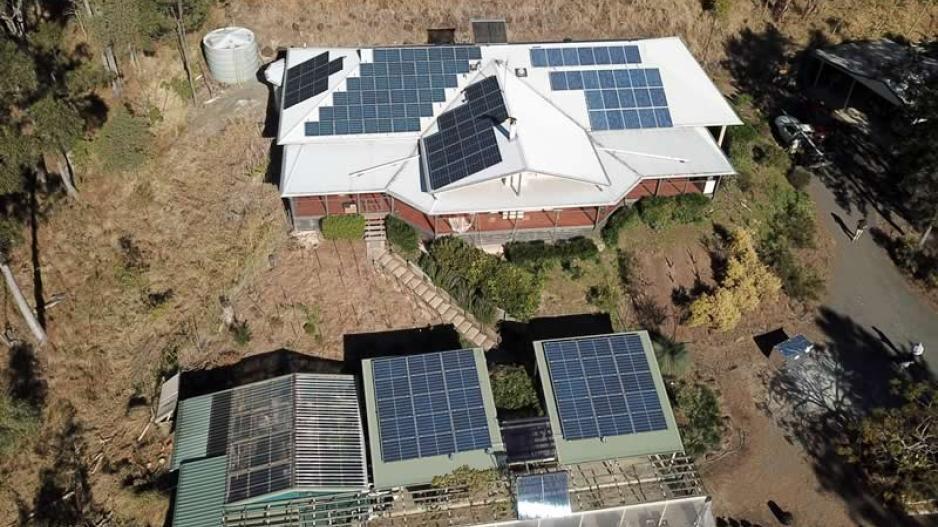Towards Energy Autonomy: Can Properties Truly Be Self-Sufficient?
The Path of Photovoltaic Panels and Energy Storage Systems
Can a household or, more broadly, a property become energy self-sufficient using photovoltaic panels and energy storage batteries? If so, how much would this cost? Would it be cost-effective? Can a property connected to the EAC network disconnect if it becomes energy self-sufficient? Are there limitations in energy production (kWh) and storage?
Brief conducted research to shed light on the topic of 'energy self-sufficient properties' since discussions regarding the installation of photovoltaic panels and energy storage systems have been prevalent for some time.
According to electricity legislation in Cyprus, there's no prohibition for any consumer whose property is connected to the EAC network from disconnecting. Therefore, if a property owner makes their property energy self-sufficient by installing a photovoltaic system along with a battery (energy storage system), they can disconnect from the EAC electricity network.
The answer is no. There is a restriction on energy production as long as a property is connected to the EAC network. However, if a property disconnects and operates as an independent unit, there are no restrictions on the installed power of the system, whether on the roof or elsewhere on the property, nor any limit on the storage capacity of the battery.
In discussions with industry experts, the storage system's capacity for a property to be considered energy self-sufficient should be sufficient to power the property for at least 48 hours.
For instance, based on various assessments, the energy needs of an average household in Cyprus are calculated to be around 4.5 kilowatts daily.
Therefore, for such a property, the energy storage capability should be at least 10kWh, ensuring the property can operate autonomously for 2 days. These two days are considered the 'bare minimum' for satisfactory operation.

While exploring the market, it's noteworthy that the sector for energy storage systems isn't fully matured yet, with limited options available. The price for a 10kWh storage battery hovers around €4,500. This price doesn't include the installation of the storage system, which varies based on individual property specifications.
For properties without an existing solar panel system, one should factor in its cost. For a system with about 5kWh capacity, the cost is approximately €7,000.
Therefore, the total cost for a household consuming around 4.5kWh per day to become energy-independent is about €12,000.
It's essential to consider the lifespan of the storage system. Given that its main component is a battery, there's a finite life to it. The operational cycle of an energy storage battery can last up to 10 years. However, its longevity is influenced by various factors such as battery type, installation location (like a cool area), and others.
Whether it's financially viable to maintain an energy-independent property instead of being connected to the public power grid depends on several factors and the specific needs of the property.
Interested individuals should account for existing solar installations on their property, assess if the current production meets their energy needs, evaluate average power bills, and calculate potential savings from installing a storage system. One must also consider the battery's lifespan, total costs, and other parameters. This will help determine the return on investment and potential profits.






